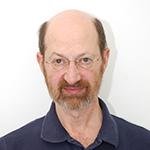The Illinois Tech physics department’s Muonium Antimatter Gravity Experiment (MAGE) was spotlighted in a recent Physics World article, “The Descent of Mass,” which describes global efforts to devise new, more precise tests of Einstein’s equivalence principle (EP).
The EP applies to such questions as the simultaneous drop of two dissimilar masses–does everything fall back to earth at the same speed? In 2013, Physics Professor Dan Kaplan and Tom Phillips, research professor of physics, proposed to test the EP with muonium–an unstable form of antimatter. They envisioned a “free fall” test to measure the effect of gravity on antimatter by sending muonium horizontally through an atom interferometer. MAGE is the world’s only experiment that uses muonium to study gravity.
The muonium atom consists of an electron orbiting an antimuon. It lives only 2.2 microseconds on average; thus, the MAGE measurement requires extreme sub-nanometer precision. This summer, the MAGE team demonstrated picometer precision for its instruments, an important step in their quest to test the theory of gravity using muonium. Using a technique akin to that of the Laser Interferometric Gravitational Observatory, the team demonstrated precision and stability better than 100 pm measured over a millisecond and better than 3 pm measured over a second.
The Physics World article also describes the Sounding Rocket Principle of Equivalence Measurement (SR-POEM), another EP experiment with which Illinois Tech is involved, which will compare the free fall of masses made of two different materials carried into space on a sounding rocket. Kaplan’s team is now setting up the ground-based prototype of SR-POEM (G-POEM) in the basement of Tech South.
Kaplan’s collaborators on MAGE and G-POEM include Physics Professor Jeff Terry, research professors Derrick Mancini, Jim Phillips, Tom Phillips, and Tom Roberts, as well as University of California, San Diego’s Bob Reasenberg and a group of physicists from Switzerland led by Klaus Kirch of ETH Zurich and the Paul Scherrer Institute.
G-POEM forms of the basis of IPRO 497-219 to be offered this spring by Kaplan and Terry. They also continue to refine the performance of the tracking frequency gauge for both G-POEM and MAGE – the subject of IPRO 497-204, offered by Kaplan and Mancini.

